1750
Thomas Thistlewood starts a detailed diary of life on a sugar plantation in Jamaica and his interactions with enslaved people.
Thomas Thistlewood starts a detailed diary of life on a sugar plantation in Jamaica and his interactions with enslaved people.
Francois Mackandal leads a rebellion in Saint-Domingue.
The Seven Years War sees Britain, Prussia and Hanover pitted against France, Austria, Russia, Spain, the Mughal Empire and Sweden in conflicts across the world.
The combination of Criollo and Forastero trees in Trinidad generates a third variety of cacao tree known as Trinitario.
British forces occupy Guadeloupe.
Enslaved people on Jamaica, led by a man known as Tacky, rebel and capture Fort Haldane and a number of plantations.The uprising is suppressed by British and Maroon forces.
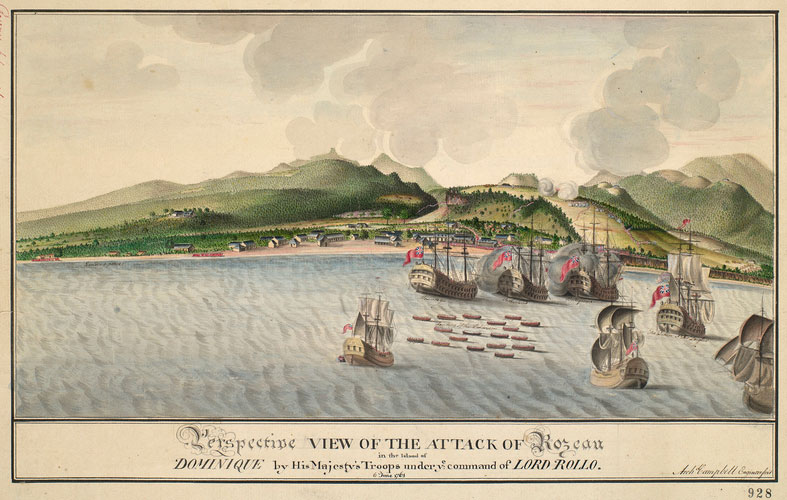
British forces occupy Dominica.
British forces occupy Martinique, Grenada, St Lucia, St Vincent and Havana.
Treaty of Paris, which grants Britain the former French colonies of Grenada, Dominica, St Vincent and Tobago.
A legislative assembly is established on Dominica, representing only the white population.
Kalinago-owned territory on Dominica is reduced to just 232 acres.
The Sugar Act of 1764 imposes taxes and duties on sugar and molasses imported into America from non-British sources.
The Stamp Act is passed by the British Parliament. Enslaved people participate in protests against this measure.
Breaking from the Navigation Acts, the Free Port Act of 1766 opens six ports in Dominica and Jamaica to foreign merchants trading certain goods.
The first steam-powered sugar mill is used in Jamaica.
The first Tobago Assembly is established.
The first slave uprisings take place on Tobago, led by an enslaved man named Sandy. There are a further five between 1771 and 1801.
Lord Mansfield rules that an enslaved person in England cannot be forced to return to the West Indies as part of the Somerset case.
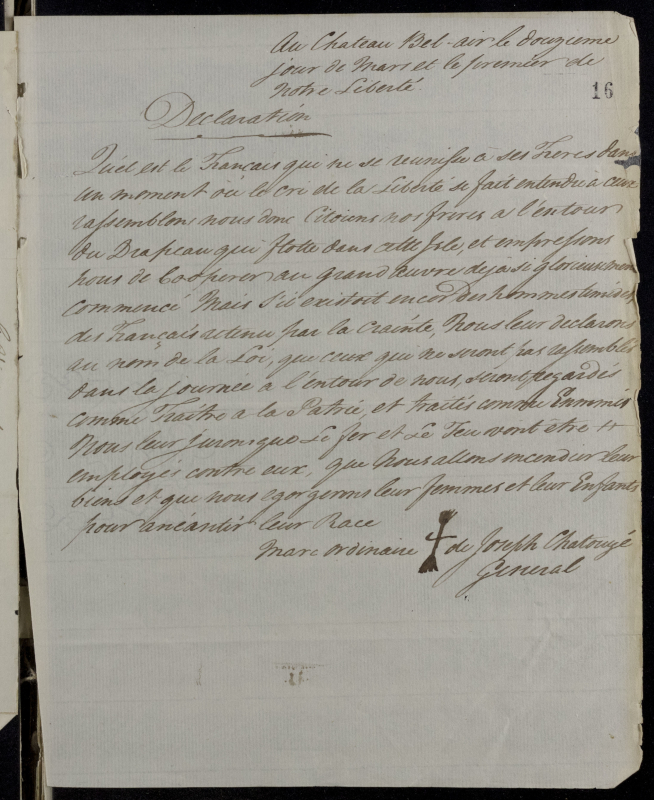
Joseph Chatoyer leads the indigenous Kalinago population of St Vincent in the First Carib War against the British.
American Revolutionary Wars.
American forces raid Forts Montagu and Nassau.
American forces raid Forts Montagu and Nassau for a second time.
French forces occupy Dominica.
British forces occupy St Lucia.
French forces occupy Grenada.
British forces raid Saint-Barthélemy, destroying the island's defences.
French forces occupy St Vincent, aided by the Kalinago population of the island.
Fourth Anglo-Dutch War breaks out following disputes over Dutch trade with Britain's enemies in the War of American Independence.
San Juan expedition: British forces, including Captain Horatio Nelson, land in Nicaragua with the aim of capturing the towns of Grenada and León. The campaign ends in disaster.
British forces led by Admiral Rodney occupy Demerara, Essequibo and Berbice. The colonies are subsequently captured by French forces in 1782 and returned to Dutch control in 1784.
British forces briefly occupy Saint-Barthélemy, administering the island as 'Saint Bartholomew'.
French forces occupy Tobago.
French forces occupy St Kitts and Nevis.
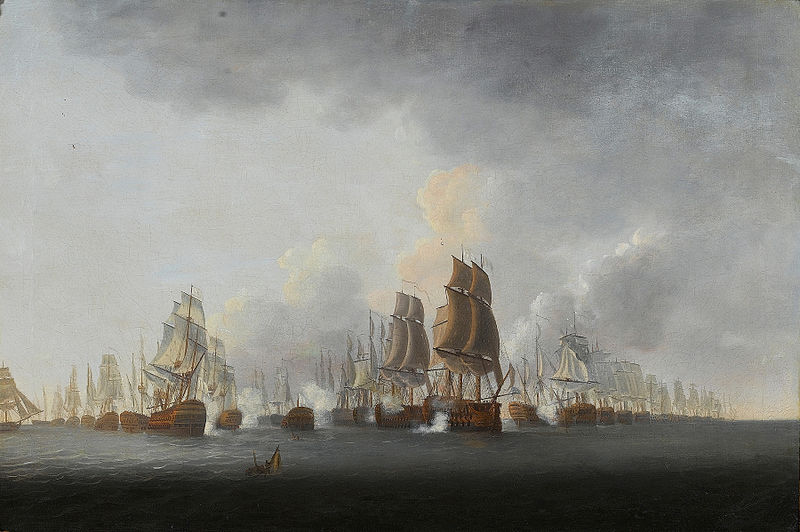
A British fleet, led by Admiral Rodney, wins a decisive victory over a French force at the Battle of the Saintes, preventing an invasion of Jamaica.
Spanish occupation of the Bahamas.
French forces occupy Montserrat. The island is returned to English control in the Treaty of Breda.
British and Spanish forces clash at the Black River colony. Reinforcements from Jamaica allow the British to retake the colonies.
Peace of Paris ends American War of Independence. France and Spain cede the Bahamas, Grenada and St Vincent back to British control.
As part of the Treaty of Versailles, British rights to cut logwood on the Yucatan coast are redefined. Under the new treaty, British logmen are only permitted to cut logwood between the Hondo River and the Belize River.
As part of the Treaty of Versailles, Britain cedes Tobago to France.
British loyalists fleeing from the War of Independence establish colonies on the Caicos Islands.
During a voyage from Africa to Jamaica, the captain of the slave ship Zong orders 133 enslaved people to be thrown overboard alive, later making a fraudulent insurance claim for the value of the dead slaves.
The French cede Saint-Barthélemy to Sweden.
The Convention of London gives permission for British logmen to cut logwood and mahogany as far south as the Sibun River. In return, British inhabitants in the Mosquito Shore and Roatan were evacuated to Belize.
Committee for the Abolition of the Slave Trade is formed.
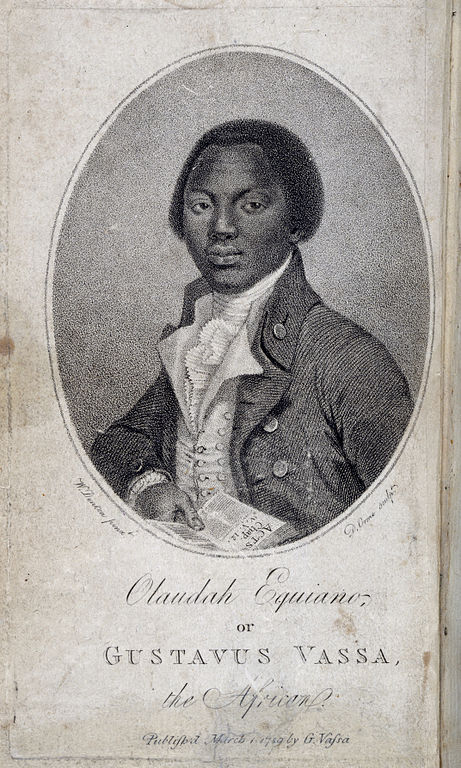
Olaudah Equiano, a formerly enslaved person who settled in London, publishes his autobiography The Interesting Narrative of the Life of Olaudah Equiano
William Wilberforce introduces a bill to abolish the slave trade. The bill - after being stalled for some years - is passed by the Commons but is defeated by the Lords.
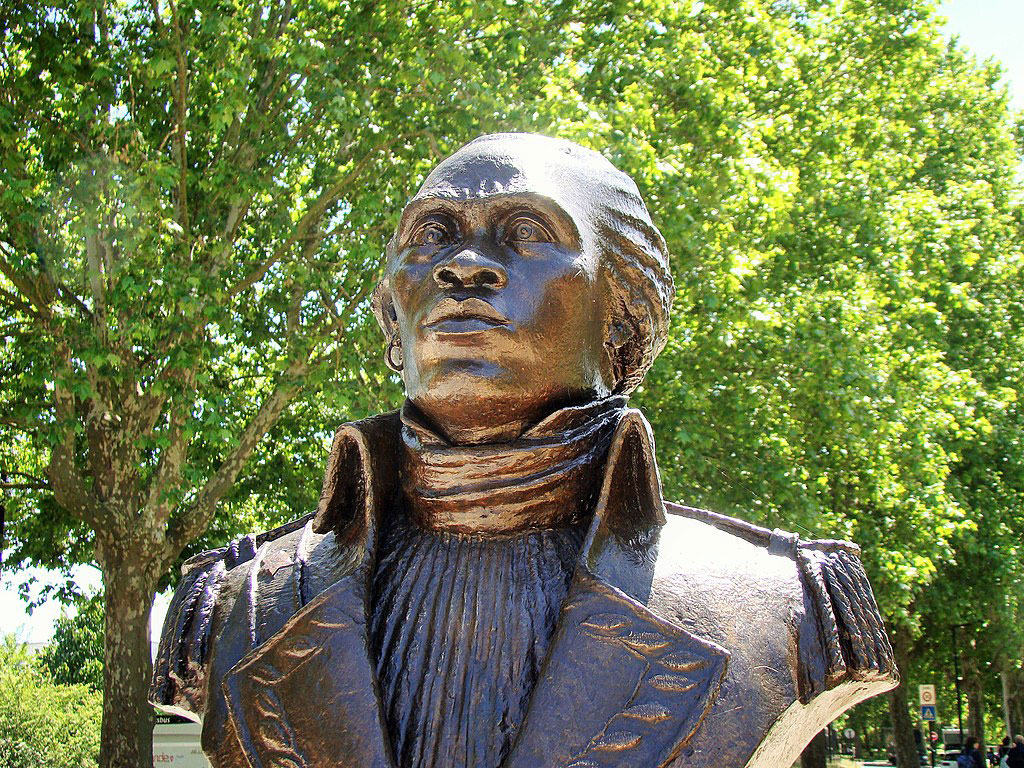
The Haitian Revolution. An army of enslaved people led by Toussaint L'Ouverture overthrows the French control and establishes Haiti as an independent republic.
A slave uprising takes place on Dominica.
Two British expeditions, led by Sir Charles Grey and Sir Ralph Abercromby, are launched against French colonies in the Caribbean.
British forces unsuccessfully attempt to seize St Domingue from Haiti.
Tobago is recaptured by the British.
The French Republic outlaws slavery across its colonies.
British forces briefly occupy Guadeloupe until it is recaptured by French revolutionary official Victor Hugues, who abolishes slavery and purges the island of royalists - many of whom were planters.
British occupy Martinique.
British forces occupy St Lucia.
The Second Maroon War begins after the public flogging of two Maroons convicted of stealing pigs from a white planter on Jamaica causes tension.
Julien Fédon, a man of French and African descent who owned an estate on Grenada, leads a rebellion which lasts until June 1796 and reportedly causes more than £2.5 million in damages.
Second Carib War. The Kalinago and Garifuna of St Vincent, led again by Joseph Chatoyer and supported by French forces, take up arms against British control of the island.
An uprising among enslaved people at Curaçao is led by Tula Rigaud.
Spain cedes Santo-Domingo to France.
British forces occupy St Lucia for the fourth time in 40 years.
Two French warships land soldiers on Anguilla. After initial success, the French force is repulsed.
A British expeditionary force from Barbados occupies Berbice, Demerara and Essequibo. The colonies are returned to Dutch control at the Treaty of Amiens in 1802.
Over 5,000 Kalinago and Garifuna are forcibly deported from St Vincent to Ruatan Island, off Honduras.
British forces led by Sir Ralph Abercromby capture Trinidad.
Spanish forces launch an unsuccessful attack on Belize.
British forces occupy Suriname.
Turks and Caicos is annexed to the Bahamas.
British occupation of Curaçao.
A planned rebellion of enslaved people in Tobago is discovered.
British forces occupy Saint-Barthélemy, administering the island as 'Saint Bartholomew'.
English forces occupy St Thomas.
In the Treaty of Amiens, Spain formally cedes Trinidad to Britain. Britain cedes Tobago to France, but recaptures the island in 1803.
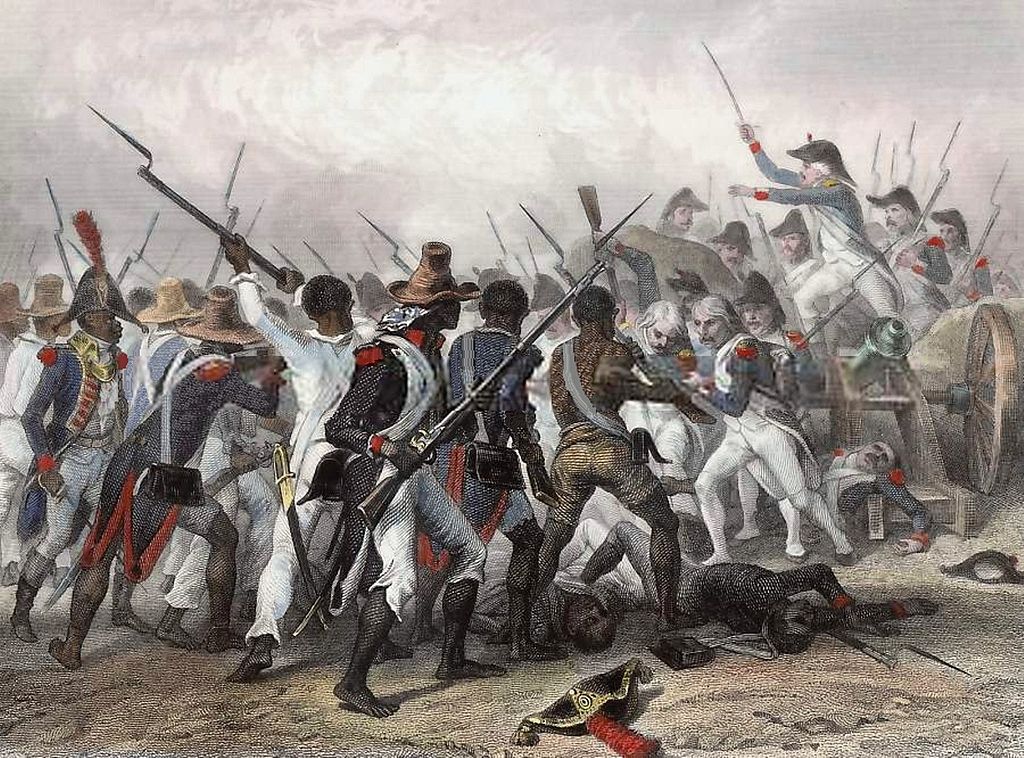
French forces recapture Haiti. However, attempts to re-introduce slavery trigger a second revolution.
After Napoleon I's government reintroduces slavery in French colonies, Louis Delgrès leads a rebellion of freedpeople in Guadeloupe. Surrounded by French troops at Danglemont Plantation, Delgrès and a number of his men opt to blow up the plantation rather than surrender.
Napoleonic Wars. A series of military expeditions sees France largely expulsed from the Caribbean.
British forces occupy Berbice, Demerara and Essequibo for a third time.
Haiti secures independence from France. Jean-Jacques Dessalines is the first ruler.
British forces occupy Suriname for a second time.
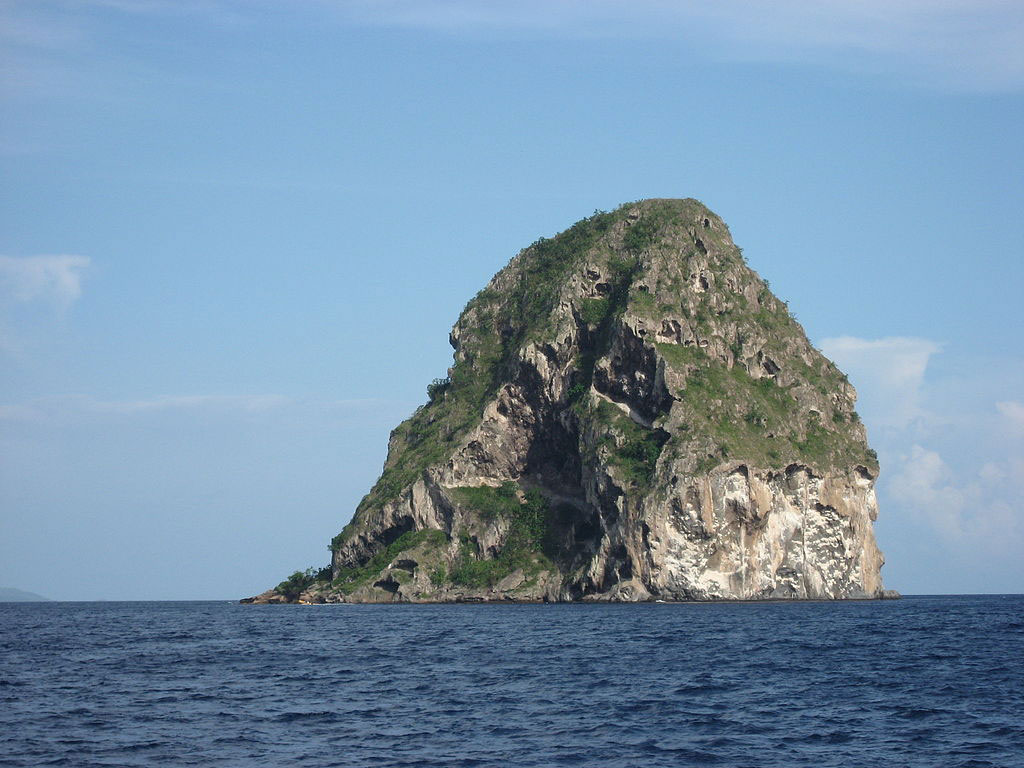
British occupy Diamond Rock, an island off Martinique. The island is commissioned as the 'sloop' HMS Diamond Rock and armed with cannon to disrupt trade around Martinique.
Haiti is declared a free republic after the successful rebellion of enslaved peoples. Jean-Jacques Dessalines is the first ruler.
A British fleet, led by Vice-Admiral Sir John Thomas Duckworth, wins a decisive victory over French forces off Santo Domingo.
British occupation of Curaçao.
English forces occupy St Thomas.
The Act for the Abolition of the Slave Trade comes into force, banning the trade of enslaved people in the British Empire.
Santo Domingo returns to Spanish control with British help.
British forces occupy Martinique.
British forces occupy Guadeloupe.
Simón Bolívar takes refuge on Curaçao.
War of 1812 . The Caribbean theatre sees several raids and naval skirmishes.
Napoleon bans the importation of sugar cane from the Caribbean.
Britain officially cedes Guadeloupe to Sweden in exchange for Swedish support against Napoleon. However, in the terms of the Treaty of Paris the island is returned to French control.
Berbice, Demerara and Essequibo are formally ceded to Britain.
In the terms of the Treaty of Paris, France cedes St Lucia and Tobago to Britain.
The governor of Guadeloupe declares support for Napoleon, not knowing of the defeat at Waterloo. British forces occupy the island.
On the request of the governor, British forces occupy Martinique to hold the island on behalf of Louis XVIII.
Parliament passes a bill requiring the registration of legally-purchased enslaved people in the colonies. The system of registration is gradually introduced by 1817.
An enslaved man named Bussa leads a rebellion of around 400 enslaved people on Barbados.
Antigua, Barbuda and Montserrat are administered as one colony.